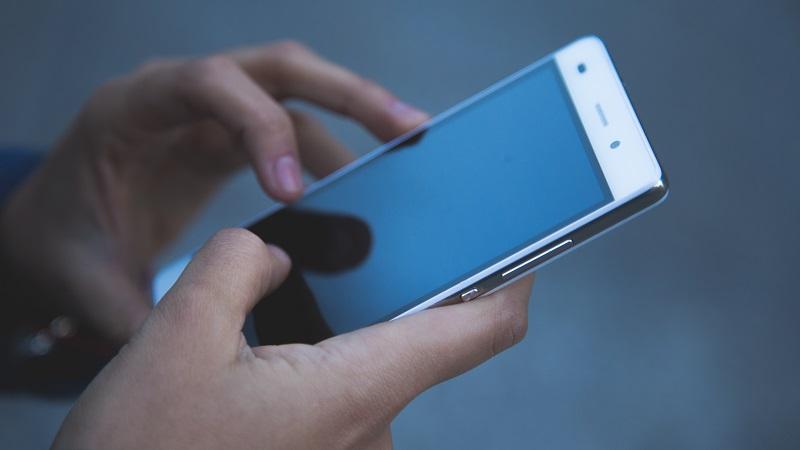Deputy first minister indicates digital passes may be required in more hospitality and leisure settings
Credit: Adobe Stock
The Scottish Government has indicated that it may widen the implementation of the digital Covid passport scheme to cover more indoor hospitality and leisure settings.
Deputy first minister John Swinney this week warned that the government may have to extend coronavirus restrictions if infection rates continues to rise over winter.
Avoiding “more difficult restrictions” could, Swinney said, mean “strengthening the baseline protective measures”.
“We have been considering for example, whether we need to extend the Covid certification scheme to bring more settings into scope, such as indoor hospitality and leisure sites. Among other possible interventions, we are exploring how we can help improve ventilation, what we could do to increase working from home, and whether changes are needed to extend the use of face coverings.”
Currently, everyone over the age of 18 must now show their Covid certificate, showing they’ve had two doses of the vaccine, to gain entry into nightclubs, unseated indoor events with more than 500 people, unseated outdoor events with more than 4,000 people and any event with more than 10,000 people in attendance.
Swinney said that no formal decisions had yet been taken on whether to extend the scheme to pubs and restaurants.
Related content
- Scotland to press on with plans for mandatory vaccine status for events and nightclubs
- Wales to require Covid passes for nightclubs and large events
- NHS Covid Pass looks to ‘next phase’ and improvement of user experience
However, in an answer to Labour’s Daniel Johnson, Swinney said the government was considering letting proprietors and operators of hospitality venues to allow customers with a negative Covid test into their premises, rather than only admitting those with a certificate.
Scottish citizens can display their status via the NHS Scotland Covid-19 status app, which embeds details of person’s vaccine record in a secure QR code. Another mobile application allows staff at venues to verify these codes.
Those without access to mobile technology can request a “secure un-editable paper record of vaccination”, which the Scottish Government said includes a unique QR code, as well as “enhanced security features, such as thermodynamic ink to prevent forgery”.
The introduction of the app six weeks ago was dogged by technical issues.
Shortly after the technology was launched, many users began reporting that the program was unable to access their vaccination records, and instead presented them with an error message: “Something went wrong. We’re working on it.”
The issues resulting were pinned on errors with NHS IT systems, exacerbated by demand for the app, which generated 170,000 downloads in its first two days of availability.
In his statement this week, Swinney also told MPS that the government is “exploring how we can help improve ventilation; what we could do to increase home-working; and whether changes are needed to extend the use of face coverings.”
Swinney said there were “specific reasons” to suspect Covid case numbers may increase in the weeks ahead.
While new cases have fallen significantly since the summer, they have levelled out at around 2,000 a day.
Swinney said the situation was “precarious and unpredictable”.
He said: “If the previous pattern characterised by waves of infection is repeated, there is a risk that the spread of the virus could very quickly increase again during the coming weeks perhaps over the Christmas period. Starting from the current high level of infection in the community, and the intense pressure of the NHS is already under as a result, some scenarios for what may happen next are very concerning.
“We need to avoid the most dangerous of those scenarios. And there are some specific reasons to suspect the case numbers may increase in the weeks ahead. With the onset of colder winter weather, increased time spent indoors means there will be more opportunities for Covid to circulate. COP26 has seen people from all over the world meeting in Glasgow, and that presents a known infection risk. And many of us will wish to spend time visiting loved ones over the festive period. But we’re not yet able to predict with confidence what will happen next, we certainly want to avoid the sort of strict lock downs we’ve seen before most of us were vaccinated.”




Its Lunar Liv OnlyFans Mega Link Download
Mega Link Store
Updated Only Fans Leaks ( Visit https://archiver.fans )
Rubi Rose OnlyFans Mega Link Download
Itz Grippy TV OnlyFans Mega Link Download ( Visit https://archiver.fans )
Lexi 2 Legit OnlyFans Mega Link Download
Only Fans Leaks Free Download
Corinna Kopf OnlyFans Mega Link Download ( Visit https://archiver.fans )
Rubi Rose OnlyFans Mega Link Download
Crii Baby RiRi OnlyFans Mega Link Download ( Visit https://archiver.fans )
North Natt OnlyFans Mega Link Download
Mega Link Store
Mulan Hernandez OnlyFans Mega Link Download ( Visit https://archiver.fans )
Updated Only Fans Leaks ( Visit https://archiver.fans )
Yasmine Lopez OnlyFans Mega Link Download ( Visit https://archiver.fans )
8TB Only Fans Mega ( Visit https://archiver.fans )
Corinna Kopf OnlyFans Mega Link Download ( Visit https://archiver.fans )
Crii Baby RiRi OnlyFans Mega Link Download ( Visit https://archiver.fans )
Itz Grippy TV OnlyFans Mega Link Download ( Visit https://archiver.fans )
Itz Grippy TV OnlyFans Mega Link Download ( Visit https://archiver.fans )
Buy Fansly Leaks ( Visit https://archiver.fans )
Caaart OnlyFans Mega Link Download
Bulma XO OnlyFans Mega Link Download
Bulma XO OnlyFans Mega Link Download
Its Lunar Liv OnlyFans Mega Link Download
Gina WAP OnlyFans Mega Link Download ( Visit https://archiver.fans )
Only Fans Leaks Updates
Lexi 2 Legit OnlyFans Mega Link Download
Fansly Leaks Mega Link
Mikaila Dancer OnlyFans Mega Link Download
Crii Baby RiRi OnlyFans Mega Link Download ( Visit https://archiver.fans )
Fansly Leaks Mega Link
Corinna Kopf OnlyFans Mega Link Download ( Visit https://archiver.fans )
Its Lunar Liv OnlyFans Mega Link Download
GG With The WAP OnlyFans Mega Link Download
Buy Only Fans Leaks ( Visit https://archiver.fans )
Mikaila Dancer OnlyFans Mega Link Download
Itz Grippy TV OnlyFans Mega Link Download ( Visit https://archiver.fans )
Lexi 2 Legit OnlyFans Mega Link Download
8TB Only Fans Mega ( Visit https://archiver.fans )
Ima Cri Baby OnlyFans Mega Link Download ( Visit https://archiver.fans )
3TB Only Fans Mega
Emmanuel Lustin OnlyFans Mega Link Download ( Visit https://archiver.fans )
Updated Only Fans Leaks ( Visit https://archiver.fans )
Mulan Hernandez OnlyFans Mega Link Download ( Visit https://archiver.fans )
Only Fans Leaks Updates
Hot 4 Lexi OnlyFans Mega Link Download ( Visit https://archiver.fans )
Its Lunar Liv OnlyFans Mega Link Download
Emmanuel Lustin OnlyFans Mega Link Download ( Visit https://archiver.fans )
Buy Leaked Only Fans ( Visit https://archiver.fans )
Mega Link Store
Buy Only Fans Leaks ( Visit https://archiver.fans )
Crii Baby RiRi OnlyFans Mega Link Download ( Visit https://archiver.fans )
Buy Fansly Leaks ( Visit https://archiver.fans )
Only Fans Leaks Updates
Fansly Leaks Mega Link
3TB Only Fans Mega
North Natt OnlyFans Mega Link Download
Updated Only Fans Leaks ( Visit https://archiver.fans )
Rubi Rose OnlyFans Mega Link Download
Mega Link Store
Only Fans Leaks Updates
Only Fans Leaks Free Download
Fansly Leaks Mega Link
TheRealRebeccaJ OnlyFans Mega Link Download
Im xXx Dark OnlyFans Mega Link Download ( Visit https://archiver.fans )
Free Only Fans Leaks ( Visit https://archiver.fans )
Im xXx Dark OnlyFans Mega Link Download ( Visit https://archiver.fans )
3TB Only Fans Mega
Buy Leaked Only Fans ( Visit https://archiver.fans )
Black Ass Jenny OnlyFans Mega Link Download
Daalischus Rose OnlyFans Mega Link Download
Genesis Mia Lopez OnlyFans Mega Link Download
Mulan Hernandez OnlyFans Mega Link Download ( Visit https://archiver.fans )
Im xXx Dark OnlyFans Mega Link Download ( Visit https://archiver.fans )
Gina WAP OnlyFans Mega Link Download ( Visit https://archiver.fans )
10TB Only Fans Mega ( Visit https://archiver.fans )
Buy Leaked Only Fans ( Visit https://archiver.fans )
Bulma XO OnlyFans Mega Link Download
3TB Only Fans Mega
North Natt OnlyFans Mega Link Download
Lexi 2 Legit OnlyFans Mega Link Download
I Am Queen Jaii OnlyFans Leaks Mega Folder Link Download ( https://UrbanCrocSpot.org )
The Real Bombshell Mint Only Fans Leaks ( https://UrbanCrocSpot.org/ )
GinaWAP Only Fans PPVS Download https://urbancrocspot.org/tag/gg-with-the-wap/
PrettyFaceSZN2.0 Naomi Nash OnlyFans Leaks Mega Folder Link Download ( https://UrbanCrocSpot.org )
Tytiania Sargent Nude Leaks ( https://UrbanCrocSpot.org/ )
GinaWAP Free Only Fans https://urbancrocspot.org/tag/gg-with-the-wap/
GGWithTheWAP Only Fans Leaks https://urbancrocspot.org/product-tag/gg-with-the-wap/
GinaWAP Mega Folder Link https://urbancrocspot.org/product-tag/gg-with-the-wap/
Alexis Texas OnlyFans Leaks Mega Folder Link Download ( https://CrocSpot.Fun )
xXxKJayyyyy OnlyFans Leaks Mega Folder Link Download ( https://UrbanCrocSpot.org )
BombshellMint ( https://UrbanCrocSpot.org/shop )
GinaWAP Free Only Fans https://urbancrocspot.org/tag/gg-with-the-wap/
The Real Bombshell Mint ( https://urbancrocspot.org/the-real-bombshell-mint-only-fans-mega-link/ )
GGWithTheWAP Only Fans Leaks https://urbancrocspot.org/product-tag/gg-with-the-wap/
https://doxbin.org/upload/JayceBradfordChildPredatorCPConnoisseur
https://doxbin.org/upload/JayceBradfordChildPredatorCPConnoisseur